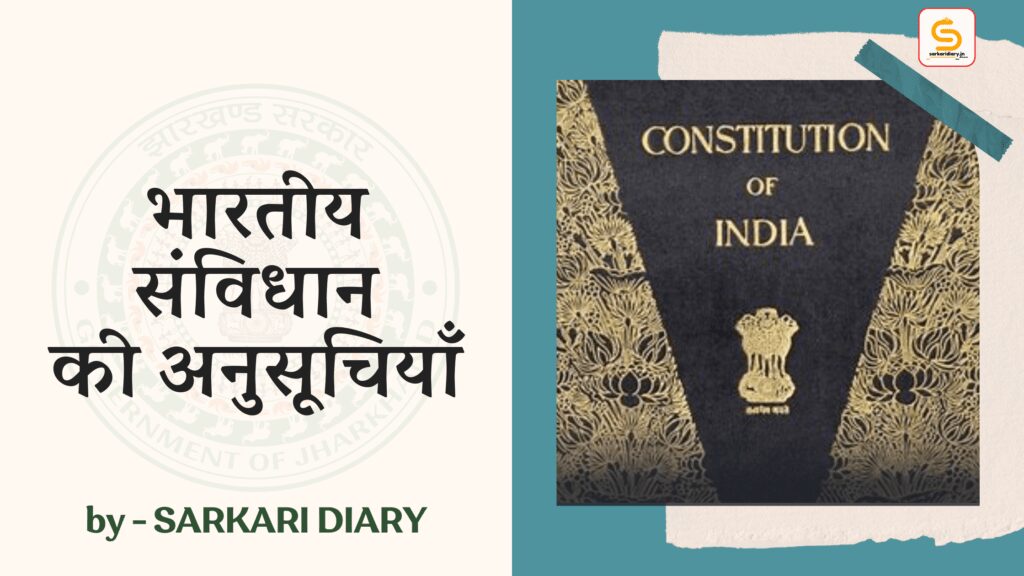Constitution Day is observed on 26th November every year as it is the day when the Constitution was made. The Constitution of India is the longest Constitution in the world.
The Indian Constitution, adopted on January 26, 1950, is the supreme law of the land. It not only provides the framework for the governance of the country but also includes various schedules that supplement and elaborate on specific aspects of the Constitution. These schedules serve as important appendices to the main text, addressing various administrative, territorial, and legal matters.

Schedules are basically tables which contain additional details which are not mentioned in the articles. The Indian Constitution originally had eight schedules. Four more schedules were added by various amendments, taking the total to twelve. So let’s take a look at this too
| Schedules 1 to 12 |
| First schedule contains the list of states and union territories and their territories |
| Second schedule contains provisions as to the President, Governors of States, Speaker and the Deputy Speaker of the House of the People and the Chairman and the Deputy Chairman of the Council of States and the Speaker and the Deputy Speaker of the Legislative Assembly and the Chairman and the Deputy Chairman of the Legislative Council of a State, the Judges of the Supreme Court and of the High Courts and the Comptroller and Auditor-General of India. |
| Third Schedule contains the Forms of Oaths or Affirmations. |
| Fourth Schedule contains provisions as to the allocation of seats in the Council of States. |
| Fifth Schedule contains provisions as to the Administration and Control of Scheduled Areas and Scheduled Tribes. |
| Sixth Schedule contains provisions as to the Administration of Tribal Areas in the States of Assam, Meghalaya, Tripura and Mizoram. |
| Seventh Schedule contains the Union list, State list and the concurrent list. |
| Eighth Schedule contains the list of recognised languages. |
| Ninth Schedule contains provisions as to validation of certain Acts and Regulations. |
| Tenth Schedule contains provisions as to disqualification on ground of defection. |
| Eleventh Schedule contains the powers, authority and responsibilities of Panchayats. |
| Twelfth Schedule contains the powers, authority and responsibilities of Municipalities. |
Importance of Schedules
The schedules to the Indian Constitution provide additional information and details that supplement the main text. They help in clarifying various aspects of governance, administration, and legal matters. The schedules ensure that the Constitution remains flexible and adaptable to the changing needs of the nation.
Conclusion
The schedules to the Indian Constitution play a crucial role in providing additional information and details that supplement the main text. They serve as important appendices, addressing various administrative, territorial, and legal matters. By providing clarity and flexibility, the schedules ensure that the Constitution remains relevant and effective in governing the diverse nation of India.







